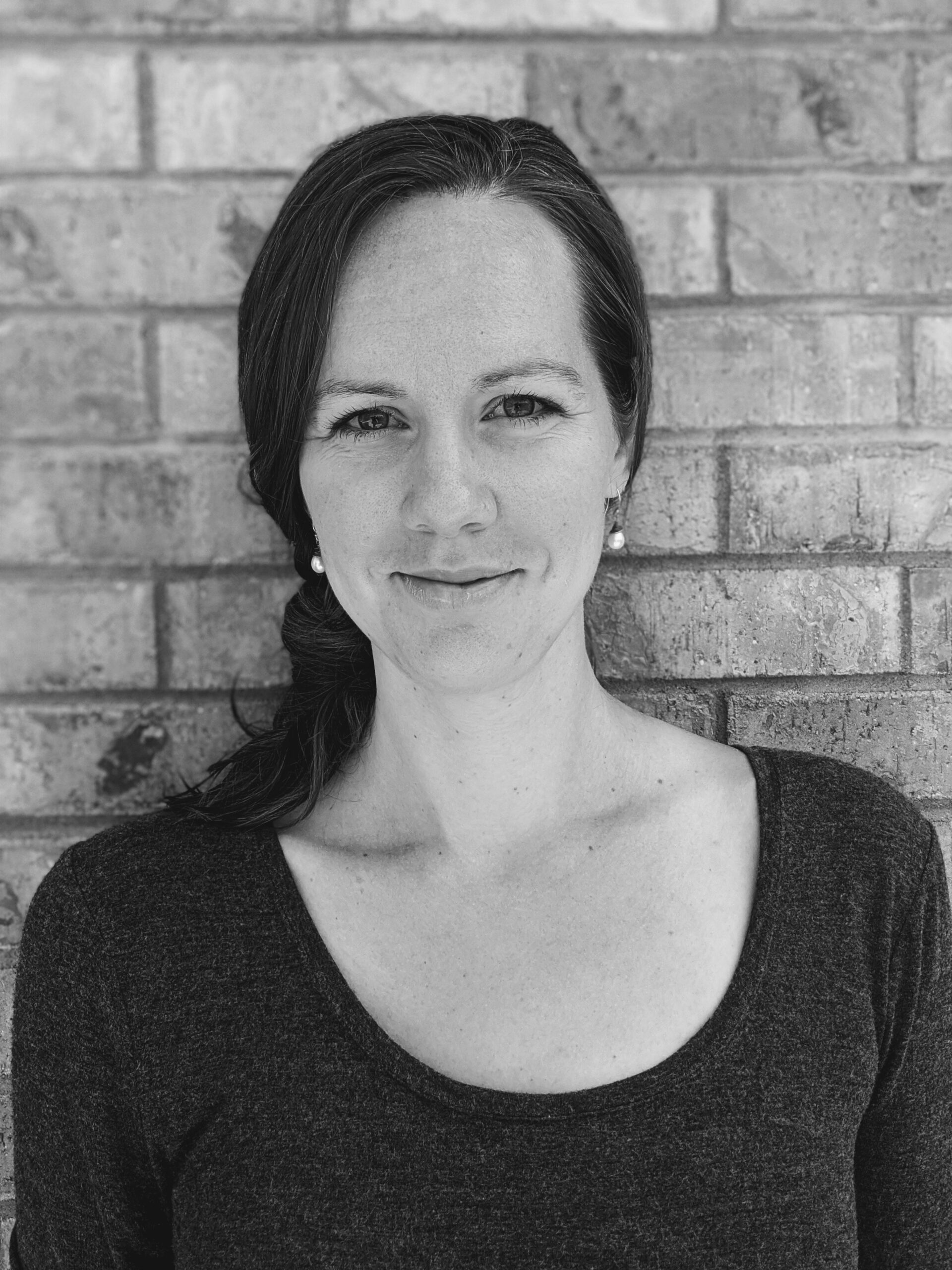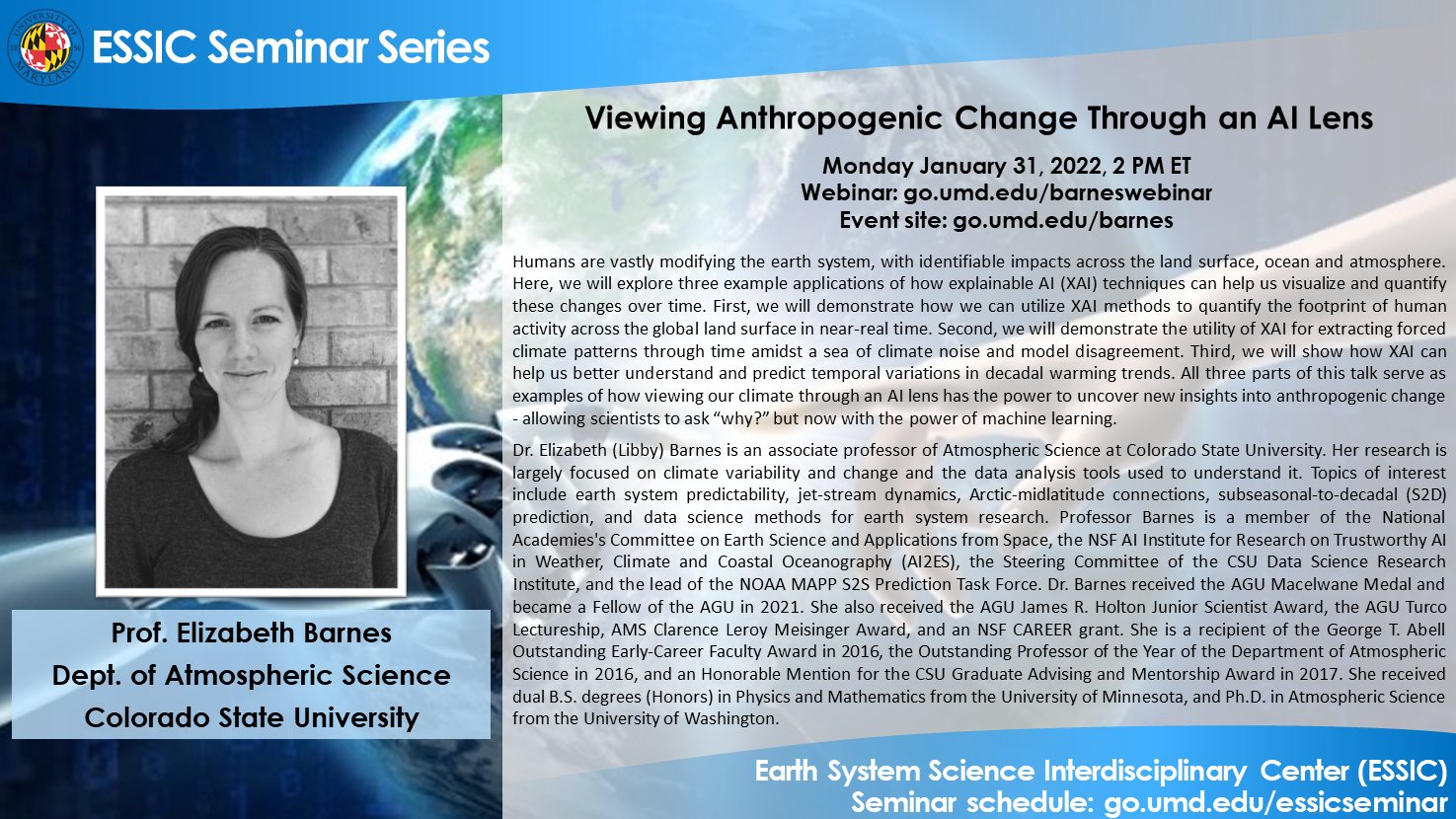
Viewing Anthropogenic Change Through an AI Lens
This event has passed. View the seminar recording here:
Prof. Elizabeth Barnes
Dept. of Atmospheric Science
Colorado State University
Monday January 31, 2022, 2 PM ET
Abstract:
Humans are vastly modifying the earth system, with identifiable impacts across the land surface, ocean and atmosphere. Here, we will explore three example applications of how explainable AI (XAI) techniques can help us visualize and quantify these changes over time. First, we will demonstrate how we can utilize XAI methods to quantify the footprint of human activity across the global land surface in near-real time. Second, we will demonstrate the utility of XAI for extracting forced climate patterns through time amidst a sea of climate noise and model disagreement. Third, we will show how XAI can help us better understand and predict temporal variations in decadal warming trends. All three parts of this talk serve as examples of how viewing our climate through an AI lens has the power to uncover new insights into anthropogenic change – allowing scientists to ask “why?” but now with the power of machine learning.
Biosketch:
Dr. Elizabeth (Libby) Barnes is an associate professor of Atmospheric Science at Colorado State University. She joined the CSU faculty in 2013 after obtaining dual B.S. degrees (Honors) in Physics and Mathematics from the University of Minnesota, obtaining her Ph.D. in Atmospheric Science from the University of Washington, and spending a year as a NOAA Climate & Global Change Fellow at the Lamont-Doherty Earth Observatory. Professor Barnes’ research is largely focused on climate variability and change and the data analysis tools used to understand it. Topics of interest include earth system predictability, jet-stream dynamics, Arctic-midlatitude connections, subseasonal-to-decadal (S2D) prediction, and data science methods for earth system research (e.g. machine learning, causal discovery). She teaches graduate courses on fundamental atmospheric dynamics and data science and statistical analysis methods. Professor Barnes is involved in a number of research community activities. In addition to being a member of the National Academies’s Committee on Earth Science and Applications from Space, a funded member of the NSF AI Institute for Research on Trustworthy AI in Weather, Climate and Coastal Oceanography (AI2ES), and on the Steering Committee of the CSU Data Science Research Institute, she recently finished being the lead of the NOAA MAPP S2S Prediction Task Force (2016-2020).
Dr. Barnes received the AGU Macelwane Medal and became a Fellow of the AGU in 2021, received the AGU Turco Lectureship for 2020, AMS Clarence Leroy Meisinger Award for 2020, and was awarded an NSF CAREER grant in 2018. She received the George T. Abell Outstanding Early-Career Faculty Award in 2016 and was recognized for her teaching and mentoring by being awarded an Honorable Mention for the CSU Graduate Advising and Mentorship Award in 2017 and being named the Outstanding Professor of the Year Award in 2016 by the graduate students of the Department of Atmospheric Science. In 2014 she was the recipient of an AGU James R. Holton Junior Scientist Award.
Webinar:
Webinar: https://go.umd.edu/barneswebinar
Event site: https://go.umd.edu/barnes
Webinar number: 2621 990 3014
Webinar password: essic
To join the audio conference only:
For IT assistance:
Cazzy Medley: cazzy@umd.edu
Resources:
Seminar schedule & archive: https://go.umd.edu/essicseminar
Seminar Google calendar: https://go.umd.edu/essicseminarcalendar
Seminar recordings on Youtube: https://www.youtube.com/user/ESSICUMD







